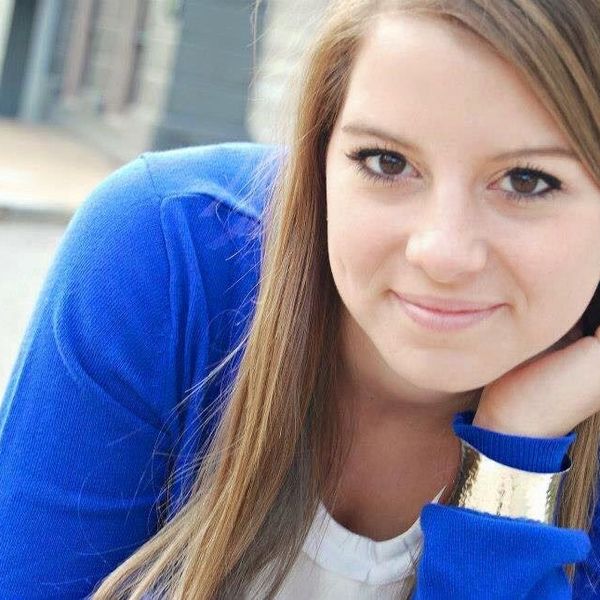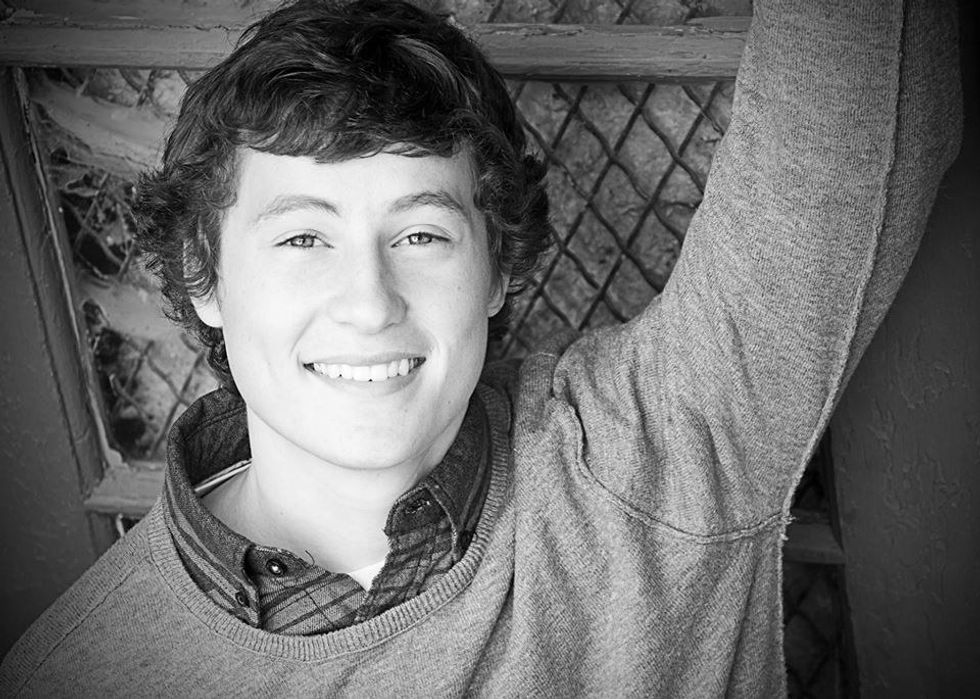December 13, 2016. A day that I will never forget. I lost my dear friend Sam Myers to suicide. I, along with a majority of his loved ones, had no idea that his mental illness was as severe as it was because he suppressed it with the most contagious smile. Not a day will go by without him crossing my mind, and my heart will continue to ache with guilt wishing that I could have helped him battle his demons. That bitter December day I lost a piece of me that I am certain I will never get back.
If you know me even the slightest bit, you know that I absolutely loathe crying in front of people. But just a few days ago, I completely lost control of my emotions in front of two of my closest friends at college. They were around when I lost Sam, so it wasn’t the first time that they have seen me have an emotional attack. This time it was different though, I got angry with them because I wanted them to understand why I lost control of my emotions, but that was impossible when I didn’t even understand myself. I’ll never forget the concerned look on their faces during my meltdown, which led them to suggest a counselor to me. I would be lying if I said I wasn’t pissed off at them for recommending counseling to me. Questions such as, “Why can’t my friends just be here for me?” ran through my head. What I didn’t understand was my my struggle was beyond the advice of my friends. They were aware that they couldn’t give me the help that I needed, no matter how badly they wanted to.
It was Monday morning and I was drowning in responsibilities, but I was unhappily seated in the counselor’s office. I was positive that I was completely fine, and the day before was just another “rough day” in a typical teenage girl’s life. That was until he pulled up my data results from the tests I took prior to/during my session. With a confused look on my face, I tried to comprehend the computer screen. I was pretty relaxed because all of my data was pretty much one color, pink. Then he informed me that pink classified severe. I struggle with severe depression, severe anxiety, and eating disorders.
Flashbacks of my darkest times flooded my head to prove to me the power my mental illness had over me without me even realizing. Starting at the end of December 2016, I would go days without eating anything. I was surviving on sugar-free gum and water with no-calorie lemonade packets added to make it tasteful. By the third/fourth day of not consuming any food, it was difficult to lift my pencil at school, my hair started to thin, and my skin would turn a blueish/purple because I was always freezing. Throughout this time, I became anemic, I lost all motivation to do anything, fell out of love with the sport I grew up with, and I even woke up multiple times in the middle of the night due to panic attacks because I was eating food in my dream. I dropped weight so quickly that my best friend, her mom, my parents, friends, and even a teacher reached out to me. I couldn’t bring myself to admit the truth because I was so embarrassed, so I covered it up with lies.
Mental health isn’t talked about enough, and considering we know so little about it, people are resigned to the fact that they are suffering, myself included. Even at my lowest points of struggling, the stigma still attached to mental illness caused my experiences to be held in the shadows for nobody to know about. I was too embarrassed to tell my parents that I wasn’t okay. What would I say when they asked why? I didn’t have an answer to that question. I didn’t want them to think that my illness was a reflection of their parenting, because they’re phenomenal parents. I have a family that loves me, friends that would do anything for me, etc. I grew up so blessed, so I convinced myself that being distressed for no reason was selfish and that it wasn’t fair to be unhappy when people had it a million times worse than I did. I had no problem going to my parents if I was experiencing physical pain, I shouldn’t have feared going to them about emotional difficulties.
If you can relate to me, stop running from your mental illness. Get help!
When I told my three best friends at DePauw that I have been diagnosed with severe mental health issues, not one of the guys would have ever guessed and I spend a majority of my free time with them. I was terrified of judgment, but they showed compassion and reassured me that they will always be around for me to talk to. All it took was for me to confess my struggle with mental illness and to be accepted by my friends to realize that there is something that needs to change in our society. That something is the stigma attached to mental illness.
To the people that have never struggled with or lost a loved one to mental illness, allow me to propose some concise insight. Depression isn’t just being sad. Anxiety isn’t just feeling anxious. That person in your class with mood swings can’t control them. These are illnesses, people! The biological view of mental illness is perceived as a chemical imbalance in the brain. This chemical imbalance gives people side effects they don’t want, and the stigma adds side effects of how society treats them as well. Suicide has become a side effect of mental illness, and until the stigma goes away, suicide won’t either.
It all starts with YOU. If you do not struggle with a mental illness, educate yourself and those around you. Once you learn about it, you will better understand what people with mental illnesses go through. Instead of basing judgment off of the stereotypes society has put on people struggling with mental illness, you will now be able to show compassion.
I didn’t share my personal story to receive sympathy or for some sort of pity party. I am comfortable talking about my mental illness to hopefully reach the ones that are too ashamed to get help, to create awareness, and to help end the stigma. Sometimes it’s hard to understand why I have to deal with my mental illness, but my mental disorder will never define me. It does not determine what I am capable of, and it also does not define my character. I have learned that it has made me more of a compassionate person. Something good always comes with the bad, and for that characteristic alone, I am thankful. I wouldn’t change a thing about myself.
National Suicide Prevention Lifeline: 1 (800) 273- 8255






















